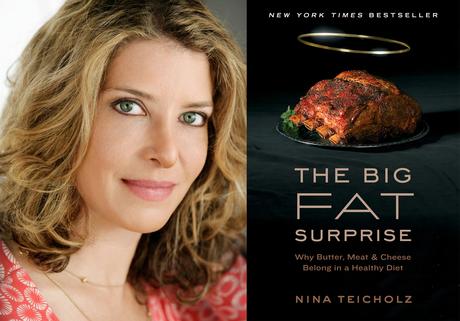
Dear Friends,
The good news to announce today is that last Friday, The BMJ announced that it is not retracting the article I wrote critiquing the science behind the Dietary Guidelines. The BMJ stood strongly by the article, including this comment by BMJ Editor-in-Chief, Fiona Godlee:
We stand by Teicholz's article with its important critique of the advisory committee's processes for reviewing the evidence, and we echo her conclusion: 'Given the ever increasing toll of obesity, diabetes, and heart disease, and the failure of existing strategies to make inroads in fighting these diseases, there is an urgent need to provide nutritional advice based on sound science.'
The retraction request was written by the DC-based advocacy group, Center for Science in the Public Interest (CSPI), which then organized 180+ scientists to sign on-truly one of the biggest-ever retraction efforts in recent history. (CSPI was also the group that earlier this year maneuvered my dis-invitation from that National Food Policy Conference panel, an issue for which many of you signed a petition :) - though sadly, I was not re-invited.)
In the end, the errors in my BMJ article were trivial and did not alter any assertions in the piece.
What was so dangerous in my article that it needed to be deleted from the scientific record? Its main findings - which have now been thrice peer-reviewed and confirmed as correct - are that:
- The expert report on which the Dietary Guidelines are based is comprised of non-rigorous reviews of the science.
- The majority of rigorous clinical trial science has been ignored (and has been for decades).
- Reviews on key issues - including saturated fat and the low-carbohydrate diet - were not properly conducted.
- The government-recommended diets are based on only a "minuscule amount of rigorous data that these diets can prevent diseases such as obesity, diabetes, and heart disease."
- In particular, the newly introduced "vegetarian diet," is based on evidence that the expert report itself judges to be "inconclusive," which is the lowest grade assigned to available evidence.
Other findings from the article are listed in my comment published in The BMJ. Thus, despite enormous scrutiny, the article stands, and it provides vital information for how we might better fight the diseases that cripple our nation.
All links are below - including to my comments and those by Fiona Godlee.
Obviously it feels great not to have this hanging over my head any longer. I plan to continue to write about nutrition science and politics - and will send out periodic emails on these topics (once every 3-4 weeks, I'd guess). If you would like to receive these regularly, please subscribe here.
All the best,
Nina
P.S.
Here is a good round-up of the story:
And here is a commentary on CSPI's approach to the science:
Earlier
BMJ Stands Behind Nina Teicholz' Critique of the US Dietary Guidelines The BMJ Criticism of the Dietary Guidelines Will NOT Be Retracted The US Dietary Guidelines Expert Committee Said to be "Completely Dissociated" From the Top Level Scientific CommunityThe British Medical Journal Slams Unscientific and Biased Low-Fat Dietary Guidelines!

